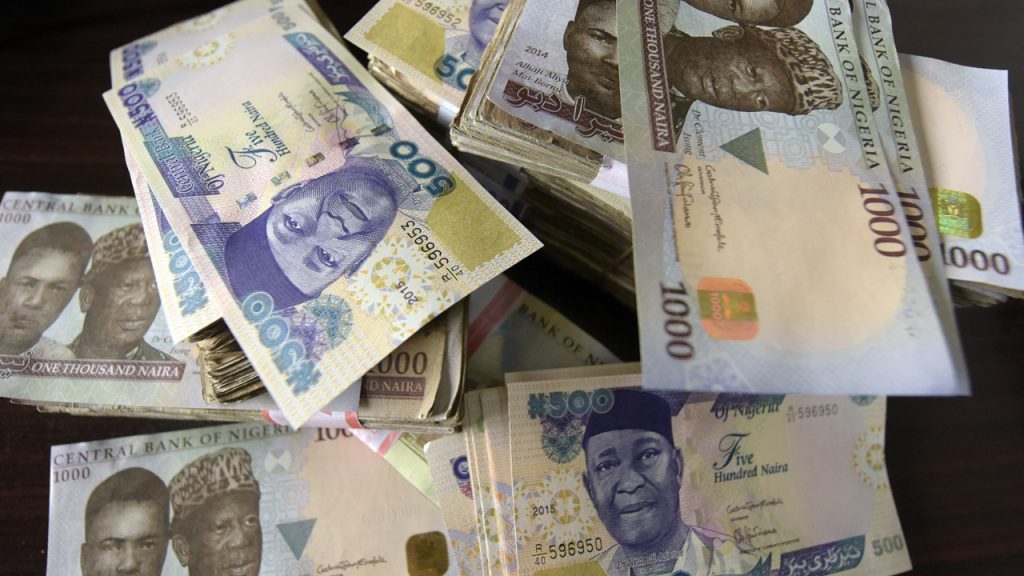
Falling Naira, loans push public debt to N121tn
Nigeria’s total public debt has reached N121.67 trillion, increasing by N24.33 trillion or 24.99 percent in three months, the Debt Management Office has announced.
This new figure is from a total debt of N97.34tn ($108.23bn) as of December 2023.
The DMO in a statement on Thursday said the public debt includes the total internal and external debt of the Federal Government of Nigeria, the 36 state governments and the Federal Capital Territory between January and March 2024.
The report said: “Nigeria’s total public debt was N121.67 trillion ($91.46 billion) as at March 31, 2024. The comparative figure for December 31, 2023 was N97.34 trillion ($108.23 billion). Total domestic debt was N65.65tn ($46.29 billion) while total external debt was N56.02 trillion ($42.12 billion).
Our correspondent further observed that the increase was mainly driven by the devaluation of the naira, as total debt was reduced in dollar terms by $16.77 billion or 18.34 percent.
The office used an official exchange rate of N1,330/$ to convert external debts into naira from N899.39 used for debt conversion in December 2023.
He added that excluding the impact of the naira exchange rate movement in the first quarter of 2024, domestic debt saw a marked increase to N65.65tn as at March 31, 2024, from N59.12tn as at December 31, 2023.
The 36 states and the FCT also have an external debt of $3.1 billion and an internal debt of $4.068 trillion.
The increase is also attributed to a fresh borrowing undertaken to partially finance the 2024 budget deficit and the securitization of part of the N7.3tn Ways and Means advances to the Central Bank of Nigeria.
The statement added, “Excluding movements in the Naira exchange rate in the first quarter of 2024, the Domestic Debt component of Public Debt alone increased from N59.12 trillion as at December 31, 2023, to N65.65 trillion as at March 31, 2024.
“The increase was from fresh borrowing to partially finance the 2024 budget deficit and provision of part of the N7.3 trillion Ways and Means Advances to the Central Bank of Nigeria.
“While borrowing, as envisioned in the 2024 Appropriations Act, will continue, we expect improvements in government revenue to increase debt sustainability.”
On Thursday, PUNCH reported that the government has borrowed a total of $4.95 billion from the World Bank in the past 12 months amid concerns about rising external debt servicing costs.
This came as the government still awaits the approval of a new loan worth $4.4 billion from the international lender and the African Development Bank over the next year.
An analysis by our correspondent showed that the bank approved funding for six projects, including $750 million for power sector financing, $500 million for women empowerment, $700 million for girl child education, $750 million for solutions to renewable energy, 750 million dollars for resource mobilization reforms and 1.5 billion dollars for economic stabilization reforms.
President Bola Tinubu had expressed his administration’s commitment to break the cycle of over-reliance on borrowing for public expenditure and the resulting debt-servicing burden placed on the government’s limited revenue management.
Tinubu recently said the country cannot continue to service its debt with 90 percent of its revenue.
He noted that the country was headed for destruction if this continued.
The President said: “Can we continue to service foreign debts with 90 percent of our income? It is a path to destruction. It is not stable. We must make the very difficult changes necessary for our country to emerge from its slumber and be respected among the great nations of the world.
“To build a great nation, we must take bold decisions; although it may be painful, it is not about you and me. It’s about generations yet unborn.”
The Minister of Finance and Coordinating Minister of the Economy, Wale Edun, has been quite vocal against loans, stating that to stabilize the economy, the country must rely less on borrowing.
But it remains to be seen whether this promise will be kept.
In a document titled, “2024: Tough Road Ahead”, Chief Executive Officer, Financial Derivatives Company, Bismarck Rewane, noted that Nigeria’s debt was becoming unsustainable and the country’s debt burden would be further exacerbated by high rates. of interest in 2024.
He said, “Nigeria’s debt is becoming unsustainable. Nigeria serviced its debt at 99 percent of its revenue in the first half of 2023. Nigeria’s debt burden will be exacerbated by high interest rates in 2024. Efficient use of borrowed funds is essential for sustainability of her debt. The federal government should spend on productive sectors to increase revenue sources.”
He noted that a one percent increase in public debt will have a negative effect of 16.7 percent on GDP and that if public debt rises to $114.3 billion, real GDP growth will drop to 2.12 percent.
He added, “high debt burden, but Nigeria is likely to withstand the shock.”
#Falling #Naira #loans #push #public #debt #N121tn
Image Source : punchng.com